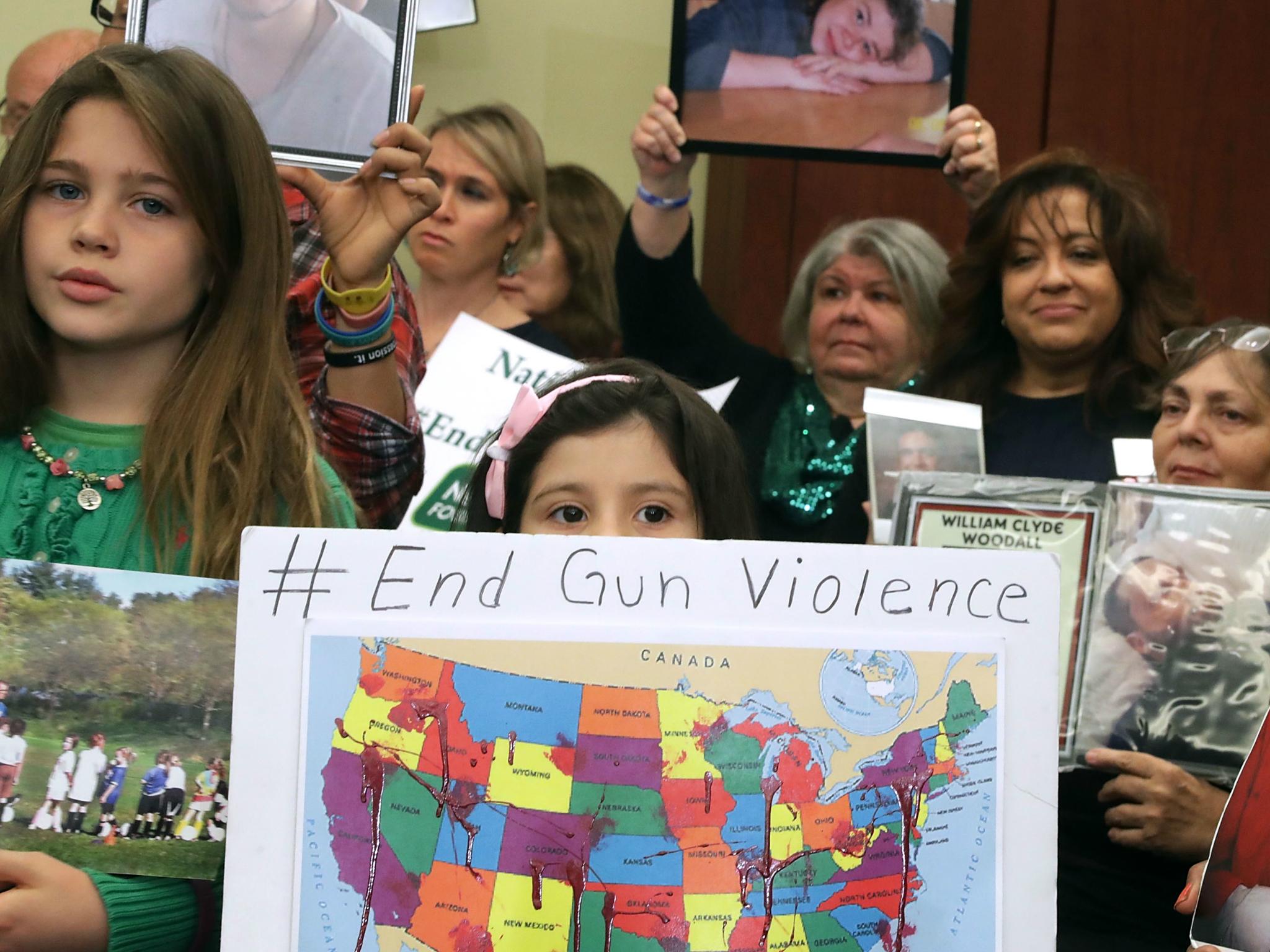19 children killed or injured by gun violence every day in America, new study estimates
The study showed that nearly 1,300 children died in a two year period as the result of firearms

Your support helps us to tell the story
From reproductive rights to climate change to Big Tech, The Independent is on the ground when the story is developing. Whether it's investigating the financials of Elon Musk's pro-Trump PAC or producing our latest documentary, 'The A Word', which shines a light on the American women fighting for reproductive rights, we know how important it is to parse out the facts from the messaging.
At such a critical moment in US history, we need reporters on the ground. Your donation allows us to keep sending journalists to speak to both sides of the story.
The Independent is trusted by Americans across the entire political spectrum. And unlike many other quality news outlets, we choose not to lock Americans out of our reporting and analysis with paywalls. We believe quality journalism should be available to everyone, paid for by those who can afford it.
Your support makes all the difference.Nearly 19 children a day die from or are treated for a gunshot wound every day in the US, according to a new study.
A recent study concluded that nearly 1,300 children died as a result of a gun from 2012 to 2014 and nearly 6,000 were treated for gun-related injuries.
The study, published in the journal of the American Academy of Pediatrics, looked at data from the Centers for Disease Control and Prevention's National Vital Statistics System and the US Consumer Product Safety Commission's National Electronic Injury Surveillance System.
The results concluded that of the injured children, an overwhelming 71 per cent were a result of assault. Approximately 21 per cent were unintentional, often children taking their parents' firearms without knowing the dangers of doing so.
Of the child deaths, over half were homicides and 38 per cent were a result of suicide.
The study also took a deeper look at gender and gun violence among those under 17 in the US.
Of the 1,300 children who died in the two year period, 82 per cent were boys. They comprised 84 per cent of the nearly 6,000 children injured due to a gun.
The most firearm deaths were in the African American community, while white and Native American children had the highest rates of firearm suicide.
Geographically, the study showed that the most deaths by firearm among children occurred in Louisiana and Washington, DC.
Delaware, Hawaii, Maine, and New Hampshire had the lowest rates.
"The researchers found that older children, those 13 to 17, had a rate of fatal firearm injury that was more than 12 times higher than the rate for children 12 and younger," reported CNN.
Some good news, the rate of firearm homicides among children were in decline year to year between 2007 and 2014.
Researchers noted however that the rate of gun-related injuries may not be wholly accurate due to under-reporting. Laws in most states require police to be called when anyone is brought into a hospital with such an injury.
In terms of the global number of gun-related deaths however, the US still makes up 91 per cent of children dying as a result of a firearm.
Given the recent shooting in Alexandria, Virginia on US Congressmen and aides, the debate on gun control has once again resurfaced.
Tragic incidents involving children like the mass shooting at Sandy Hook Elementary School in Newtown, Connecticut where 20 first- and second-graders were killed in December 2014 also brought the issue of firearms controls to the forefront.
Non profit community-focused organisations like Cure Violence are also addressing the problem as a public health crisis rather than just an issue of stricter legal controls on firearms purchasing and possession.
Gary Slutkin, a professor of public health at the University of Illinois-Chicago, told NPR earlier this year that gun violence needs to be treated like any "contagious disease."
"The definition of contagious is it produces more of itself, and how much you've been exposed is the predictor of whether you're likely to do it," he told NPR.
Join our commenting forum
Join thought-provoking conversations, follow other Independent readers and see their replies
Comments